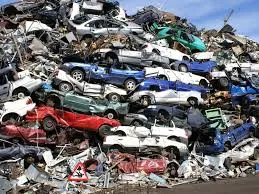

ພ.ຈ. . 04, 2024 16:54 Back to list
The Impact and Importance of Steel Shredders in Recycling
In today's industrial landscape, steel shredders play a crucial role in the recycling process, particularly in the management of scrap metal. As the world continues to grapple with the challenges of waste reduction and resource conservation, the importance of efficient recycling solutions cannot be overstated. Steel shredders are at the forefront of this endeavor, allowing for the effective processing of scrap steel and other ferrous materials.
Steel shredders are heavy-duty machines designed to pulverize and fragment large pieces of steel into smaller, manageable sizes. This process not only makes it easier to handle and transport scrap metal but also enhances the efficiency of downstream recycling operations. The shredded steel can then be easily melted down and reformed into new products, reducing the need for raw materials and conserving energy in the manufacturing process.
The operation of a steel shredder involves several key components, including a powerful motor, a series of sharp-bladed rotors, and a feed system that ensures a steady supply of material. As the steel enters the shredder, the rotors spin at high speeds, applying immense force to break down the metal. This process results in a homogenous material that can be sorted and separated for further processing.

One of the primary benefits of steel shredders is their contribution to sustainability
. By enabling the recycling of steel, these machines help divert large amounts of waste from landfills and reduce the environmental impact associated with mining and processing virgin materials. Furthermore, recycling steel typically requires less energy than producing new steel from raw ores, leading to a significant reduction in greenhouse gas emissions.In addition to their environmental benefits, steel shredders also provide economic advantages. The recycling industry is a vital component of the global economy, generating jobs and supporting numerous businesses. Steel shredding facilities can effectively create a closed-loop system, where discarded materials are transformed into valuable resources. This not only promotes a circular economy but also ensures a steady supply of recycled materials for further manufacturing processes.
As technology continues to advance, steel shredders are becoming more efficient and capable of processing a wider range of materials. Innovations such as automation and improved sorting techniques are enhancing the effectiveness of these machines, making the recycling process faster and more accurate.
In conclusion, steel shredders are indispensable tools in the recycling industry, facilitating the transformation of scrap metal into valuable resources. Their role in promoting sustainability, conserving energy, and contributing to economic growth underscores the need for investment in advanced shredding technologies. As we move towards a more sustainable future, steel shredders will undoubtedly be key players in the journey toward effective resource management and environmental stewardship.
Latest news
Troubleshooting Common Eddy Separator Problems
NewsJul.04,2025
The Role of Metal Recycling Plants in Circular Economy
NewsJul.04,2025
The Impact of Recycling Line Pickers on Waste Management Costs
NewsJul.04,2025
Safety Features Every Metal Shredder Should Have
NewsJul.04,2025
How Industrial Shredders Improve Waste Management Systems
NewsJul.04,2025
How Cable Granulators Contribute to Sustainable Recycling
NewsJul.04,2025